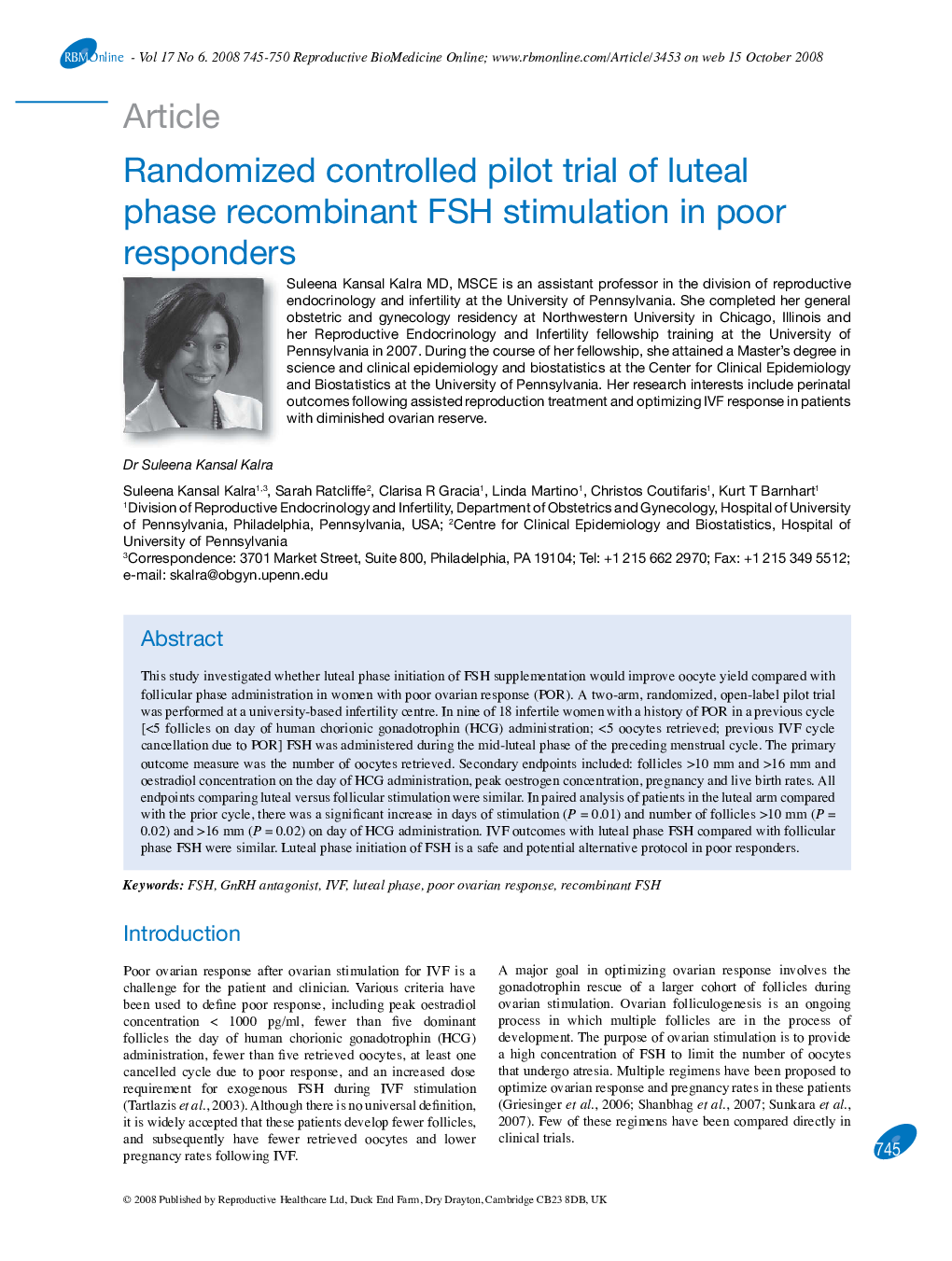| Article ID | Journal | Published Year | Pages | File Type |
|---|---|---|---|---|
| 3972298 | Reproductive BioMedicine Online | 2008 | 6 Pages |
This study investigated whether luteal phase initiation of FSH supplementation would improve oocyte yield compared with follicular phase administration in women with poor ovarian response (POR). A two-arm, randomized, open-label pilot trial was performed at a university-based infertility centre. In nine of 18 infertile women with a history of POR in a previous cycle [<5 follicles on day of human chorionic gonadotrophin (HCG) administration; <5 oocytes retrieved; previous IVF cycle cancellation due to POR] FSH was administered during the mid-luteal phase of the preceding menstrual cycle. The primary outcome measure was the number of oocytes retrieved. Secondary endpoints included: follicles >10 mm and >16 mm and oestradiol concentration on the day of HCG administration, peak oestrogen concentration, pregnancy and live birth rates. All endpoints comparing luteal versus follicular stimulation were similar. In paired analysis of patients in the luteal arm compared with the prior cycle, there was a significant increase in days of stimulation (P = 0.01) and number of follicles >10 mm (P = 0.02) and >16 mm (P = 0.02) on day of HCG administration. IVF outcomes with luteal phase FSH compared with follicular phase FSH were similar. Luteal phase initiation of FSH is a safe and potential alternative protocol in poor responders.
